Events
| Name | organizer | Where |
|---|---|---|
| MBCC “Doing Business with Mongolia seminar and Christmas Receptiom” Dec 10. 2025 London UK | MBCCI | London UK Goodman LLC |
NEWS

MNT 4 billion project to increase flow of Ulz river to commence this year www.montsame.mn
Dornod /MONTSAME/ With state budget financing of MNT 4 billion, the project to increase the water flow in Ulz river will commence this year.
Ulz river flows through transboundary areas such as Norovlin soum of Khentii aimag, and Bayan-Uul, Bayandun, Dashbalbar and Chuluunkhoroot soums of Dornod aimag, taking its origin from Ikh and Baga Burd springs located in Norovlin soum of Khentii aimag. The length of Ulz river is 510 km, 90 percent of which belongs to Mongolian territory.
Although, numerous rivers including Duch, Turgen, Berkh, Khuurain valley, Ar bulag, Kharkhiraa, Ajnai used to flow in Ulz river, most of the rivers dried up in recent years, making Ulz River at risk of running dry too.
According to the numbers, about 15 thousand locals live near the basin of Ulz river. So, the locals expressing their concerns towards the issue, saying that measures need to be taken immediately,
Thus, MP N.Nomtoibayar initiated the project in order to increase the water flow of Ulz river. A feasibility study for the project will be formulated in the first phase.

ETT: Dividends for 1,072 shares will be decided by April www.zgm.mn
Erdenes Tavan Tolgoi JSC (ETT) presented its 2018 operational report yesterday. The report shows that ETT’s net profit doubled the previous year amount at MNT 720 billion. Also, Gankhuyag Battulga, CEO of ETT, announced that the company is now able to distribute dividends to 2,511,00 people that are holding 1,072 shares of ETT.
The company distributed 1072 shares to the public at MNT 933 per share respectively and has been running on deficit since 2013. However, the company managed to settle most of its debt in 2017.
The amount of dividends will be set after an audit on its 2018 financial report. After that, the board will hold a meeting to submit its request for the distribution to the Cabinet for suggestions. Preliminary schedules of the final decision has been set in April. “This matter is different from the upcoming potential initial public offering (IPO). Dividends will be distributed regardless of the IPO process,” explained Mr. Gankhuyag.
IPO financing to be spent on improving profitability and infrastructure
According to officials, 1.3 million citizens who own ETT shares have not yet opened brokerage accounts. Since the establishment of ETT information center in May 2018, over 500,000 people have opened brokerage accounts. If the ETT board decides to distribute dividends to the public, people with the account will have instant access to the financing.
Mr. Gankhuyag also informed that the preparatory works of the IPO are mostly complete. The company is ready to present a bill to the Parliament if five investment banks and an audit firm are selected.
Initially, ETT will offer 30 percent of its stake at the Hong Kong Stock Exchange and could potentially seek dual-listing at the New York Stock Exchange later on. According to Mr. Gankhuyag, the company is requiring USD 1 billion to increase profitability, such as continuing the railroad construction and establishing coal preparation plant, while the necessary nationwide infrastructure is estimated to total USD 2 billion.
Last year, the company reportedly improved its governance, financial and human resource policies, as well as redetermining its reserves and completing the IPO preparation.
With the Australian Joint Ore Reserves Committee (JORC) Code, ETT’s coal reserve was confirmed to be 7.3 billion tons. Thus, international organizations view that the company is fully capable of raising the necessary financing, noted Mr. Gankhuyag.
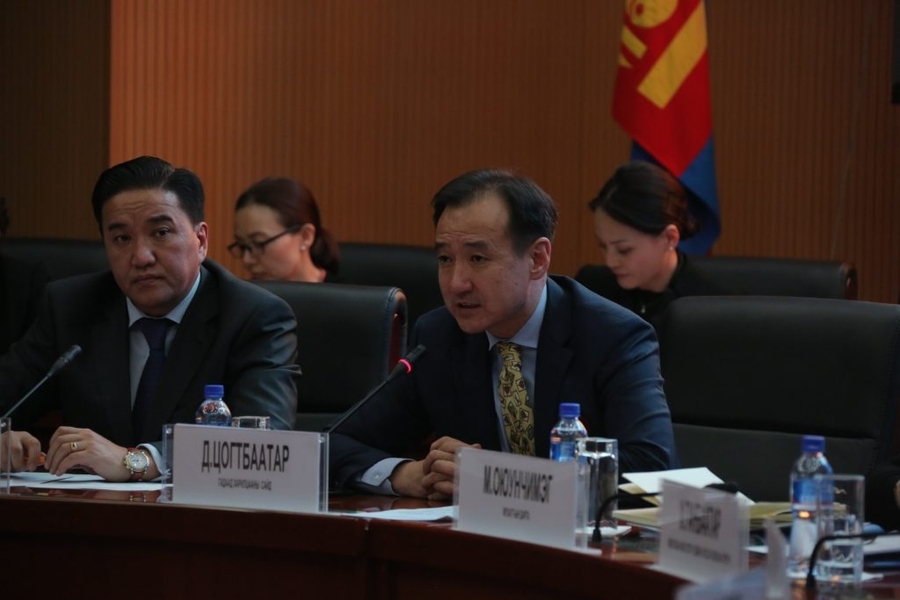
EAM Swaraj meets overseas ministers of Iran, Mongolia www.videostreet.pk
New Delhi [India], Jan nine (ANI): India held bilateral meetings with Iran and Mongolia respectively, on the sidelines of the Raisina talk, which became inaugurated on January eight with the aid of Norwegian prime Minister Erna Solberg within the presence of top Minister Narendra Modi and numerous other excessive-degree dignitaries.
external Affairs Minister Sushma Swaraj held a meeting with her Iranian counterpart, Javad Zarif right here on Wednesday wherein the 2 aspects mentioned essential bilateral problems, such as the situation in Afghanistan.
"EAM @SushmaSwaraj met Iranian overseas Minister @JZarif who is in Delhi for the @raisinadialogue. Held extensive ranging discussion on vital bilateral issues and shared perspectives on the local scenario," Raveesh Kumar, the Spokesperson for the Ministry of outside Affairs (MEA) tweeted.
Swaraj also met with Mongolian foreign Minister Damdin Tsogtbaatar, in which both the perimeters took inventory of the "fantastic trends" in relationship in areas of energy, renewable energy, improvement partnership, capacity constructing & tradition, consistent with the MEA.
both Zarif and Tsogtbaatar are slated to supply ministerial addresses at the continuing Raisina talk- "a multilateral convention devoted to addressing the maximum hard issues facing the worldwide network." (ANI)
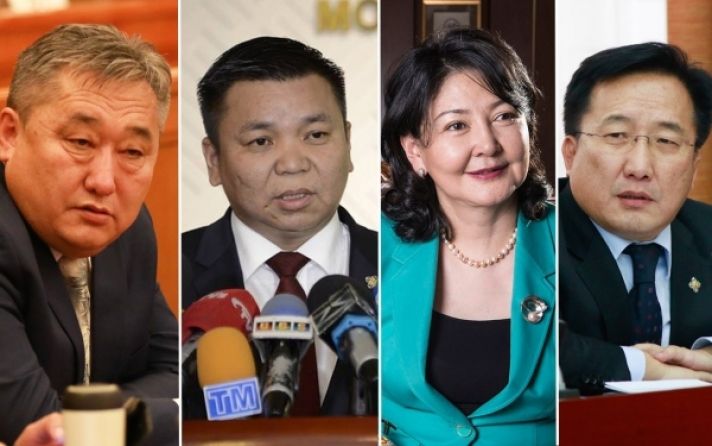
Prosecutor requests stripping Mongolian MPs of immunity www.news.mn
The State General Prosecutor’s Office of Mongolia has submitted a request for stripping four parliament members of immunity. According to one source, MP’s B.Undarmaa, G.Soltan, D.Damba-Ochir and L.Enkhbold are facing prosecuted over the ongoing scandal of the Small and Medium Enterprises Fund. However, the parliamentary standing committee on immunity has been delayed twice due lack of attendance.
In 2009, the Mongolian government developed a fund to support small and medium enterprises (SME’s). This provided companies with low-interest loans at 3 percent interest for up to five years and contained 2 billion Mongolian Tugrik (roughly USD 780,000 at today’s exchange rate). The fund is reported to have dispersed loans, totalling nearly 700 billion tugrik, or several hundred million U.S. dollars. The fund was created under – and continues to be overseen by – the Ministry of Food, Agriculture, and Light Industry.
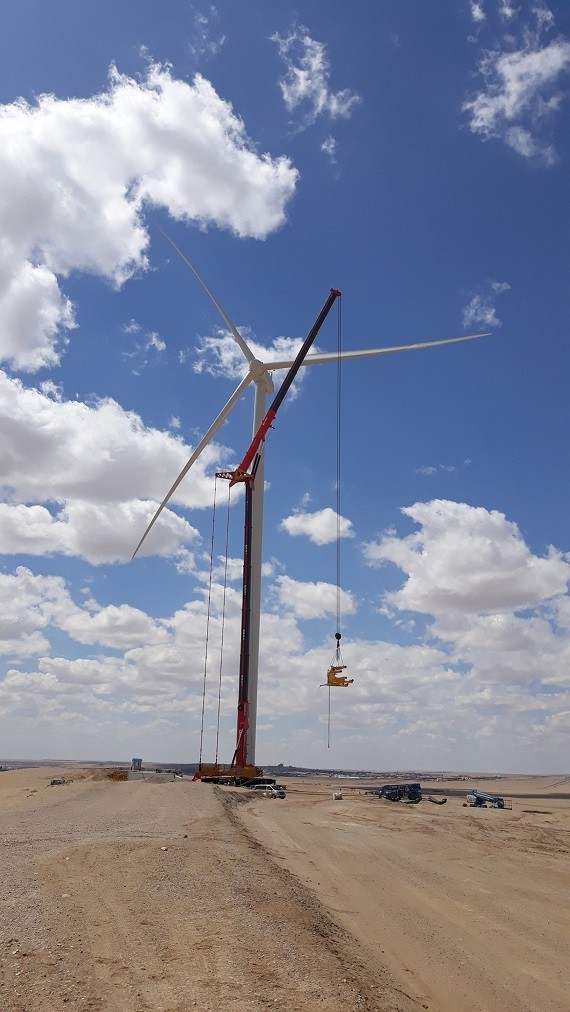
China gets go-ahead for 6GW onshore wind farm in Inner Mongolia www.asian-power.com
It could be the world’s largest onshore wind project.
China’s State Power Investment Corp (SPIC) got the go-ahead for a 6GW onshore wind project in Inner Mongolia worth $6.2b, Recharge News reports. SPIC said the project will be the world’s largest.
The Ulanqab wind project will sell power with no subsidies. The report adds that it will compete with coal-fired power’s price benchmark in the region at $41.26/MWh.
The renewables director of China’s National Energy Administration (NEA), Liang Zhipeng, said zero-subsidy wind is feasible in some regions of the country, especially pointing to projects in Ulanqab – the “wind capital of China.”
According to SPIC, it is ensuring grid transmission for the project. The State Grid revealed plans to build 12 new ultra-high-voltage (UHV) transmission grids, including one from western Inner Mongolia to Shanxi.
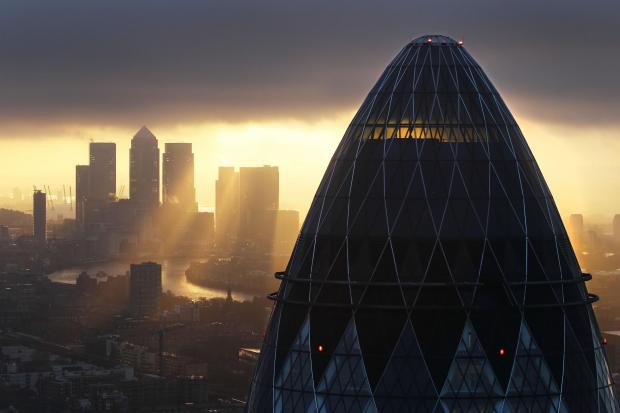
"Doing business with Mongolia”, “UK Investors show” business program March 27-April 02 London UK www.mongolianbusinessdatabase.com
Mongolian Business Database with the support of the British Embassy in UB and Mongolian-British Chamber of Commerce is starting to register the participant for “MBCCI’s Doing Business with Mongolia” seminar and “UK Investors show” in London UK between March 27-April 02. 2019.
The delegates will visit the House of Commons by the special invitation of Mr.John Grogan, MP of UK and the Chairman of Mongolian-British Chamber of Commerce etc.
The MBCC is a not-for-profit membership organisation established in 2009 to foster strong business links between Mongolia and the UK. It aims to provide a professional and social environment for business people who wish to be introduced to, and become part of, the British-Mongolian business culture and community.
Please review the information in details on the following link and contact at contact@mongolianbusinessdatabase.com or/and 976 99066062 for the registration and related inquiry
http://mongolianbusinessdatabase.com/base/eventsdetails…
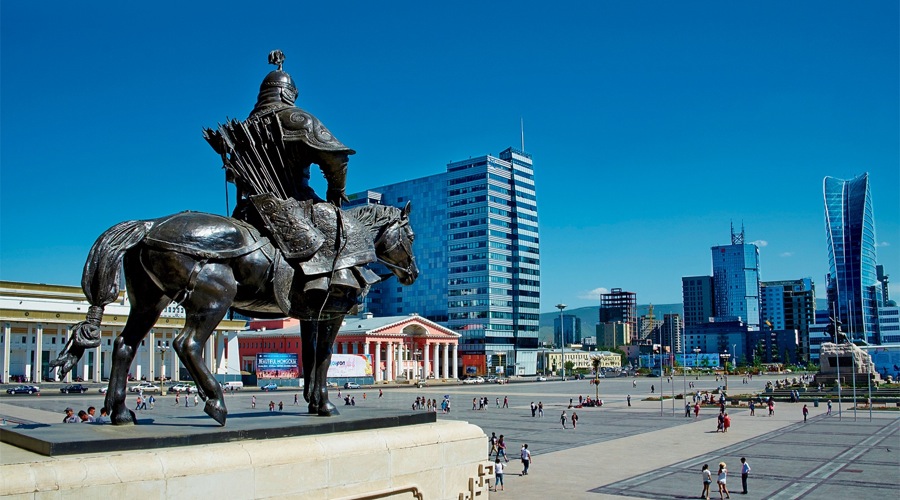
A Debilitating Corruption Scandal Threatens More Damage to Mongolia’s Economy www.worldpoliticsreview.com
Mongolia has been rocked in recent months by a series of corruption scandals that have prompted large-scale demonstrations in the capital, Ulaanbaatar. The government of Prime Minister Ukhnaagiin Khurelsukh has been paralyzed by revelations that senior government officials, including members of his Cabinet, misused funds that were intended to assist small and medium-sized enterprises. In an interview with WPR, Morris Rossabi, a professor of East Asian history at Columbia University, explains why corruption is so widespread in Mongolia and why the current wave of scandals comes at a particularly bad time for its economy.
World Politics Review: Why is corruption such a pervasive issue in Mongolia, and how did it motivate so many people to take to the streets last month?
Rossabi: Corruption has accelerated dramatically in Mongolia’s “wild ride to capitalism” since 1990. The country was plagued by minor levels of bribery and graft from its empire stage in the 13th and 14th centuries to its communist period from 1921 to 1990, but corruption was not a pervasive part of Mongolian political culture. The post-communist era, however, has witnessed an increase in corruption in politics, business and the educational and medical systems.
To be sure, corruption existed in the communist period, but there were checks on such illegal activities. In an ostensibly egalitarian state with a population as small as Mongolia’s, displays of ill-gotten wealth—in the forms of big houses, fancy clothing and elaborate parties—were both readily noticeable and perilous. The authorities were capricious but had the power to inflict severe punishments for malfeasance. Fear of such reprisals would frequently prevent overt, large-scale corruption.
That changed in the post-communist era, as officials emerged relatively unscathed from accusations and even convictions of accepting bribes or kickbacks. Nambaryn Enkhbayar, a prominent politician who served as both prime minister and president of Mongolia during the 2000s, was found guilty of corruption in 2012 but was pardoned after serving one year in prison. He is now active in politics again, as leader of the small Mongolian People’s Revolutionary Party.
In another well-known case, former Prime Minister Sanjaagiin Bayar was repeatedly accused of accepting bribes in exchange for his signature on a 2009 agreement with a foreign company to extract gold and copper from Mongolia’s largest mine. He and several other officials were finally arrested in 2018, but further legal action has yet to be taken.
The recent street demonstrations, in protest of a Cabinet minister and other senior officials illegally obtaining low-interest loans from a fund allocated for small and medium-sized enterprises, follow in a long line of such efforts. Mongolians took to the streets in 2005 to protest the leasing of land with valuable mineral deposits to Robert Friedland, an American-Canadian financier whose record on environmental protection is so abhorrent that he earned the nickname “Toxic Bob.” In 2008, demonstrations over alleged improprieties in that year’s legislative elections resulted in a number of deaths and in damage to buildings in the center of Ulaanbaatar. These efforts, however, did not lead to significant reforms, and it remains to be seen whether the current protests will be more effective.
WPR: What actions have been taken by the government so far in response to the current loan scandal, and what further measures could officials take to restore public confidence?
Rossabi: The government has been compelled to act in light of the seriousness of the accusations. Twenty-one members of parliament and several Cabinet ministers are confirmed to have profited from low-interest loans designed to assist small and medium-sized enterprises. The Economist Intelligence Unit, citing local press reports, notes that 124 out of 134 firms that received loans from the fund in 2016 were connected to government officials or their families. For example, the roads and transport minister requested and received a loan of $371,000 for his wife’s high-end postoperative medical center. Meanwhile, small business owners with no political connections frequently reported that they had received no responses or were denied loans.
In response to the scandal, the head of the fund in question has been arrested and a Cabinet vice minister, as well as at least two other officials, have been detained. The minister for food, agriculture and light industry, Batjargal Batzorig, resigned over the revelation that members of his family had received a loan for a transport company they owned. Khurelsukh appears to not have been involved, but many lawmakers thought he should accept some of the blame. Nonetheless, he survived a vote of no confidence in November. Mongolian media outlets speculated about the deals he made with other members of parliament to retain his post, but no evidence of such backroom dealing has emerged.
The government will require significant reforms to restore public confidence. First, it is notable that this widespread corruption scandal was revealed by local investigative journalists and not by the government’s own anti-corruption agency. This is a sign that the agency needs more personnel, resources and authority. Second, the accused government officials must be prosecuted and, if found guilty, must serve significant prison sentences. Finally, in the future, international aid funds should be overseen by a special agency, shielded from interference by senior politicians. Without these measures, corruption in government will persist.
WPR: How is the ongoing furor over corruption and the related political dysfunction likely to affect Khurelsukh’s policy agenda?
Rossabi: Khurelsukh was elected in 2017 after his predecessor was caught on tape requesting payment for an appointment to a position in government. It is a sad irony that someone who took office partially as a response to corruption now finds himself mired in a corruption scandal.
The current president, Khaltmaa Battulga, is a political rival of Kurelsukh’s and has called for his resignation, but Battulga’s criticisms were seen as lacking credibility due to his own history of profiting from the poorly administered sale of state assets during the 1990s. Still, the scandal-ridden Cabinet and the power struggle with Battulga has crippled Khurelsukh’s ability to govern effectively.
This plague of scandal and dysfunction comes at a particularly bad time for Mongolia’s economy. In 2017, the International Monetary Fund provided a $5.5 billion guarantee for unpaid Mongolian loans, rescuing the country from a sovereign debt default. But the current scandal has no doubt undermined confidence in the Mongolian government on the part of the IMF and other international financial institutions, potentially affecting their future approach toward Ulaanbaatar.
More broadly, the government needs new economic policies to diversify away from mining. Mongolia’s reliance on the extraction of metals and minerals to power its economic growth subjects it to the vagaries of world commodity prices. A drop in these prices over the past four years has dealt a devastating economic blow. Reformers in government, as well as international financial institutions and development banks, had plans to promote other sectors, such as manufacturing and eco-tourism. But corruption scandals have diverted attention from these efforts. As if that wasn’t bad enough, the National Chamber of Commerce and Industry, fed up with pervasive graft, has urged its members not to pay taxes until corruption is rooted out and the government has stabilized.
Clearly, a full recovery from these scandals will require considerable time and persistent effort. It may even require drastic reforms to Mongolia’s political and economic systems.
...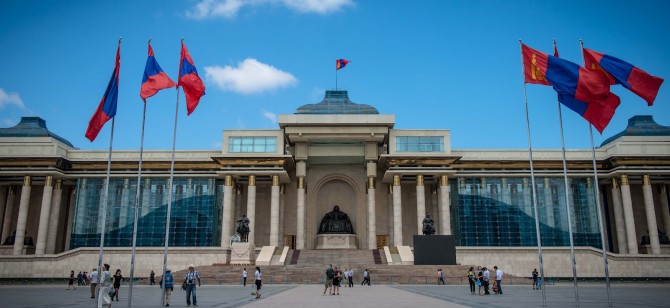
Religious organisations in Mongolia under inspection www.news.mn
Mongolia’s National Emergency Management Agency has been holding an inspection of all monasteries, churches and religious organisations which are currently active in Ulaanbaatar. The inspection is aimed at preventing fire and identifying any other possible health risks in places where many people gather.
According to national statistics, there are over 370 monasteries, churches and other religious organizations in Ulaanbaatar.
The inspection began on 4 January and will last until 25 January.

Former Justice Minister arrested on corruption charges www.news.mn
Earlier today, Mongolia’s anti-corruption agency arrested former Justice Minister D.Dorligjav and his younger brother D.Baatar. Law enforcement officers also searched the former minister’s home yesterday (7 January).
D.Dorligjav has been accused of obtaining USD 4 million by extortion from T.Ganbold, director of Altan Dornod Mongol, a mining company, when he was working as justice minister. The money was transferred though D.Baatar’s account.
However, the ex-minister explained that the USD 2 million had mistakenly been transferred to his brother’s account.
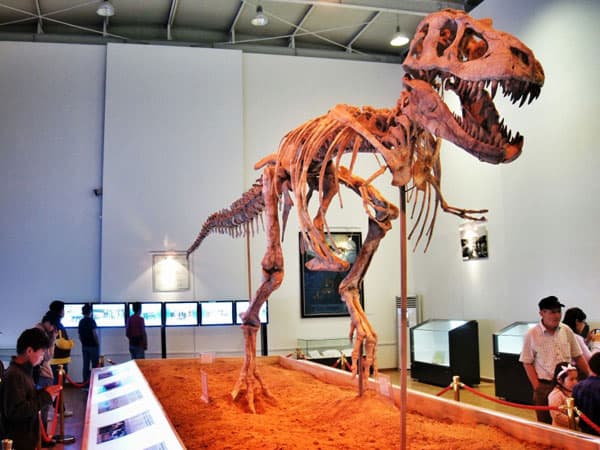
Two Mongolians arrested for smuggling dinosaur fossil www.news.mn
Mongolian Police have arrested two people over the illegal possession of a rare dinosaur fossil. The pair, a man from Ulaanbaatar and another from South Gobi (Umnugobi) province, were arrested after the police found information on the internet announcing the sale of the fossil.
The police seized the dinosaur remains and handed it over to the Institute of Paleontology and Geology at the Mongolian Academy of Sciences. The rare remains are from a dinosaur which lived 80 million years ago during the Cretaceous period.
It is strictly illegal to sell dinosaur remains in Mongolia.
- «
- 1
- 2
- 3
- 4
- 5
- 6
- 7
- 8
- 9
- 10
- 11
- 12
- 13
- 14
- 15
- 16
- 17
- 18
- 19
- 20
- 21
- 22
- 23
- 24
- 25
- 26
- 27
- 28
- 29
- 30
- 31
- 32
- 33
- 34
- 35
- 36
- 37
- 38
- 39
- 40
- 41
- 42
- 43
- 44
- 45
- 46
- 47
- 48
- 49
- 50
- 51
- 52
- 53
- 54
- 55
- 56
- 57
- 58
- 59
- 60
- 61
- 62
- 63
- 64
- 65
- 66
- 67
- 68
- 69
- 70
- 71
- 72
- 73
- 74
- 75
- 76
- 77
- 78
- 79
- 80
- 81
- 82
- 83
- 84
- 85
- 86
- 87
- 88
- 89
- 90
- 91
- 92
- 93
- 94
- 95
- 96
- 97
- 98
- 99
- 100
- 101
- 102
- 103
- 104
- 105
- 106
- 107
- 108
- 109
- 110
- 111
- 112
- 113
- 114
- 115
- 116
- 117
- 118
- 119
- 120
- 121
- 122
- 123
- 124
- 125
- 126
- 127
- 128
- 129
- 130
- 131
- 132
- 133
- 134
- 135
- 136
- 137
- 138
- 139
- 140
- 141
- 142
- 143
- 144
- 145
- 146
- 147
- 148
- 149
- 150
- 151
- 152
- 153
- 154
- 155
- 156
- 157
- 158
- 159
- 160
- 161
- 162
- 163
- 164
- 165
- 166
- 167
- 168
- 169
- 170
- 171
- 172
- 173
- 174
- 175
- 176
- 177
- 178
- 179
- 180
- 181
- 182
- 183
- 184
- 185
- 186
- 187
- 188
- 189
- 190
- 191
- 192
- 193
- 194
- 195
- 196
- 197
- 198
- 199
- 200
- 201
- 202
- 203
- 204
- 205
- 206
- 207
- 208
- 209
- 210
- 211
- 212
- 213
- 214
- 215
- 216
- 217
- 218
- 219
- 220
- 221
- 222
- 223
- 224
- 225
- 226
- 227
- 228
- 229
- 230
- 231
- 232
- 233
- 234
- 235
- 236
- 237
- 238
- 239
- 240
- 241
- 242
- 243
- 244
- 245
- 246
- 247
- 248
- 249
- 250
- 251
- 252
- 253
- 254
- 255
- 256
- 257
- 258
- 259
- 260
- 261
- 262
- 263
- 264
- 265
- 266
- 267
- 268
- 269
- 270
- 271
- 272
- 273
- 274
- 275
- 276
- 277
- 278
- 279
- 280
- 281
- 282
- 283
- 284
- 285
- 286
- 287
- 288
- 289
- 290
- 291
- 292
- 293
- 294
- 295
- 296
- 297
- 298
- 299
- 300
- 301
- 302
- 303
- 304
- 305
- 306
- 307
- 308
- 309
- 310
- 311
- 312
- 313
- 314
- 315
- 316
- 317
- 318
- 319
- 320
- 321
- 322
- 323
- 324
- 325
- 326
- 327
- 328
- 329
- 330
- 331
- 332
- 333
- 334
- 335
- 336
- 337
- 338
- 339
- 340
- 341
- 342
- 343
- 344
- 345
- 346
- 347
- 348
- 349
- 350
- 351
- 352
- 353
- 354
- 355
- 356
- 357
- 358
- 359
- 360
- 361
- 362
- 363
- 364
- 365
- 366
- 367
- 368
- 369
- 370
- 371
- 372
- 373
- 374
- 375
- 376
- 377
- 378
- 379
- 380
- 381
- 382
- 383
- 384
- 385
- 386
- 387
- 388
- 389
- 390
- 391
- 392
- 393
- 394
- 395
- 396
- 397
- 398
- 399
- 400
- 401
- 402
- 403
- 404
- 405
- 406
- 407
- 408
- 409
- 410
- 411
- 412
- 413
- 414
- 415
- 416
- 417
- 418
- 419
- 420
- 421
- 422
- 423
- 424
- 425
- 426
- 427
- 428
- 429
- 430
- 431
- 432
- 433
- 434
- 435
- 436
- 437
- 438
- 439
- 440
- 441
- 442
- 443
- 444
- 445
- 446
- 447
- 448
- 449
- 450
- 451
- 452
- 453
- 454
- 455
- 456
- 457
- 458
- 459
- 460
- 461
- 462
- 463
- 464
- 465
- 466
- 467
- 468
- 469
- 470
- 471
- 472
- 473
- 474
- 475
- 476
- 477
- 478
- 479
- 480
- 481
- 482
- 483
- 484
- 485
- 486
- 487
- 488
- 489
- 490
- 491
- 492
- 493
- 494
- 495
- 496
- 497
- 498
- 499
- 500
- 501
- 502
- 503
- 504
- 505
- 506
- 507
- 508
- 509
- 510
- 511
- 512
- 513
- 514
- 515
- 516
- 517
- 518
- 519
- 520
- 521
- 522
- 523
- 524
- 525
- 526
- 527
- 528
- 529
- 530
- 531
- 532
- 533
- 534
- 535
- 536
- 537
- 538
- 539
- 540
- 541
- 542
- 543
- 544
- 545
- 546
- 547
- 548
- 549
- 550
- 551
- 552
- 553
- 554
- 555
- 556
- 557
- 558
- 559
- 560
- 561
- 562
- 563
- 564
- 565
- 566
- 567
- 568
- 569
- 570
- 571
- 572
- 573
- 574
- 575
- 576
- 577
- 578
- 579
- 580
- 581
- 582
- 583
- 584
- 585
- 586
- 587
- 588
- 589
- 590
- 591
- 592
- 593
- 594
- 595
- 596
- 597
- 598
- 599
- 600
- 601
- 602
- 603
- 604
- 605
- 606
- 607
- 608
- 609
- 610
- 611
- 612
- 613
- 614
- 615
- 616
- 617
- 618
- 619
- 620
- 621
- 622
- 623
- 624
- 625
- 626
- 627
- 628
- 629
- 630
- 631
- 632
- 633
- 634
- 635
- 636
- 637
- 638
- 639
- 640
- 641
- 642
- 643
- 644
- 645
- 646
- 647
- 648
- 649
- 650
- 651
- 652
- 653
- 654
- 655
- 656
- 657
- 658
- 659
- 660
- 661
- 662
- 663
- 664
- 665
- 666
- 667
- 668
- 669
- 670
- 671
- 672
- 673
- 674
- 675
- 676
- 677
- 678
- 679
- 680
- 681
- 682
- 683
- 684
- 685
- 686
- 687
- 688
- 689
- 690
- 691
- 692
- 693
- 694
- 695
- 696
- 697
- 698
- 699
- 700
- 701
- 702
- 703
- 704
- 705
- 706
- 707
- 708
- 709
- 710
- 711
- 712
- 713
- 714
- 715
- 716
- 717
- 718
- 719
- 720
- 721
- 722
- 723
- 724
- 725
- 726
- 727
- 728
- 729
- 730
- 731
- 732
- 733
- 734
- 735
- 736
- 737
- 738
- 739
- 740
- 741
- 742
- 743
- 744
- 745
- 746
- 747
- 748
- 749
- 750
- 751
- 752
- 753
- 754
- 755
- 756
- 757
- 758
- 759
- 760
- 761
- 762
- 763
- 764
- 765
- 766
- 767
- 768
- 769
- 770
- 771
- 772
- 773
- 774
- 775
- 776
- 777
- 778
- 779
- 780
- 781
- 782
- 783
- 784
- 785
- 786
- 787
- 788
- 789
- 790
- 791
- 792
- 793
- 794
- 795
- 796
- 797
- 798
- 799
- 800
- 801
- 802
- 803
- 804
- 805
- 806
- 807
- 808
- 809
- 810
- 811
- 812
- 813
- 814
- 815
- 816
- 817
- 818
- 819
- 820
- 821
- 822
- 823
- 824
- 825
- 826
- 827
- 828
- 829
- 830
- 831
- 832
- 833
- 834
- 835
- 836
- 837
- 838
- 839
- 840
- 841
- 842
- 843
- 844
- 845
- 846
- 847
- 848
- 849
- 850
- 851
- 852
- 853
- 854
- 855
- 856
- 857
- 858
- 859
- 860
- 861
- 862
- 863
- 864
- 865
- 866
- 867
- 868
- 869
- 870
- 871
- 872
- 873
- 874
- 875
- 876
- 877
- 878
- 879
- 880
- 881
- 882
- 883
- 884
- 885
- 886
- 887
- 888
- 889
- 890
- 891
- 892
- 893
- 894
- 895
- 896
- 897
- 898
- 899
- 900
- 901
- 902
- 903
- 904
- 905
- 906
- 907
- 908
- 909
- 910
- 911
- 912
- 913
- 914
- 915
- 916
- 917
- 918
- 919
- 920
- 921
- 922
- 923
- 924
- 925
- 926
- 927
- 928
- 929
- 930
- 931
- 932
- 933
- 934
- 935
- 936
- 937
- 938
- 939
- 940
- 941
- 942
- 943
- 944
- 945
- 946
- 947
- 948
- 949
- 950
- 951
- 952
- 953
- 954
- 955
- 956
- 957
- 958
- 959
- 960
- 961
- 962
- 963
- 964
- 965
- 966
- 967
- 968
- 969
- 970
- 971
- 972
- 973
- 974
- 975
- 976
- 977
- 978
- 979
- 980
- 981
- 982
- 983
- 984
- 985
- 986
- 987
- 988
- 989
- 990
- 991
- 992
- 993
- 994
- 995
- 996
- 997
- 998
- 999
- 1000
- 1001
- 1002
- 1003
- 1004
- 1005
- 1006
- 1007
- 1008
- 1009
- 1010
- 1011
- 1012
- 1013
- 1014
- 1015
- 1016
- 1017
- 1018
- 1019
- 1020
- 1021
- 1022
- 1023
- 1024
- 1025
- 1026
- 1027
- 1028
- 1029
- 1030
- 1031
- 1032
- 1033
- 1034
- 1035
- 1036
- 1037
- 1038
- 1039
- 1040
- 1041
- 1042
- 1043
- 1044
- 1045
- 1046
- 1047
- 1048
- 1049
- 1050
- 1051
- 1052
- 1053
- 1054
- 1055
- 1056
- 1057
- 1058
- 1059
- 1060
- 1061
- 1062
- 1063
- 1064
- 1065
- 1066
- 1067
- 1068
- 1069
- 1070
- 1071
- 1072
- 1073
- 1074
- 1075
- 1076
- 1077
- 1078
- 1079
- 1080
- 1081
- 1082
- 1083
- 1084
- 1085
- 1086
- 1087
- 1088
- 1089
- 1090
- 1091
- 1092
- 1093
- 1094
- 1095
- 1096
- 1097
- 1098
- 1099
- 1100
- 1101
- 1102
- 1103
- 1104
- 1105
- 1106
- 1107
- 1108
- 1109
- 1110
- 1111
- 1112
- 1113
- 1114
- 1115
- 1116
- 1117
- 1118
- 1119
- 1120
- 1121
- 1122
- 1123
- 1124
- 1125
- 1126
- 1127
- 1128
- 1129
- 1130
- 1131
- 1132
- 1133
- 1134
- 1135
- 1136
- 1137
- 1138
- 1139
- 1140
- 1141
- 1142
- 1143
- 1144
- 1145
- 1146
- 1147
- 1148
- 1149
- 1150
- 1151
- 1152
- 1153
- 1154
- 1155
- 1156
- 1157
- 1158
- 1159
- 1160
- 1161
- 1162
- 1163
- 1164
- 1165
- 1166
- 1167
- 1168
- 1169
- 1170
- 1171
- 1172
- 1173
- 1174
- 1175
- 1176
- 1177
- 1178
- 1179
- 1180
- 1181
- 1182
- 1183
- 1184
- 1185
- 1186
- 1187
- 1188
- 1189
- 1190
- 1191
- 1192
- 1193
- 1194
- 1195
- 1196
- 1197
- 1198
- 1199
- 1200
- 1201
- 1202
- 1203
- 1204
- 1205
- 1206
- 1207
- 1208
- 1209
- 1210
- 1211
- 1212
- 1213
- 1214
- 1215
- 1216
- 1217
- 1218
- 1219
- 1220
- 1221
- 1222
- 1223
- 1224
- 1225
- 1226
- 1227
- 1228
- 1229
- 1230
- 1231
- 1232
- 1233
- 1234
- 1235
- 1236
- 1237
- 1238
- 1239
- 1240
- 1241
- 1242
- 1243
- 1244
- 1245
- 1246
- 1247
- 1248
- 1249
- 1250
- 1251
- 1252
- 1253
- 1254
- 1255
- 1256
- 1257
- 1258
- 1259
- 1260
- 1261
- 1262
- 1263
- 1264
- 1265
- 1266
- 1267
- 1268
- 1269
- 1270
- 1271
- 1272
- 1273
- 1274
- 1275
- 1276
- 1277
- 1278
- 1279
- 1280
- 1281
- 1282
- 1283
- 1284
- 1285
- 1286
- 1287
- 1288
- 1289
- 1290
- 1291
- 1292
- 1293
- 1294
- 1295
- 1296
- 1297
- 1298
- 1299
- 1300
- 1301
- 1302
- 1303
- 1304
- 1305
- 1306
- 1307
- 1308
- 1309
- 1310
- 1311
- 1312
- 1313
- 1314
- 1315
- 1316
- 1317
- 1318
- 1319
- 1320
- 1321
- 1322
- 1323
- 1324
- 1325
- 1326
- 1327
- 1328
- 1329
- 1330
- 1331
- 1332
- 1333
- 1334
- 1335
- 1336
- 1337
- 1338
- 1339
- 1340
- 1341
- 1342
- 1343
- 1344
- 1345
- 1346
- 1347
- 1348
- 1349
- 1350
- 1351
- 1352
- 1353
- 1354
- 1355
- 1356
- 1357
- 1358
- 1359
- 1360
- 1361
- 1362
- 1363
- 1364
- 1365
- 1366
- 1367
- 1368
- 1369
- 1370
- 1371
- 1372
- 1373
- 1374
- 1375
- 1376
- 1377
- 1378
- 1379
- 1380
- 1381
- 1382
- 1383
- 1384
- 1385
- 1386
- 1387
- 1388
- 1389
- 1390
- 1391
- 1392
- 1393
- 1394
- 1395
- 1396
- 1397
- 1398
- 1399
- 1400
- 1401
- 1402
- 1403
- 1404
- 1405
- 1406
- 1407
- 1408
- 1409
- 1410
- 1411
- 1412
- 1413
- 1414
- 1415
- 1416
- 1417
- 1418
- 1419
- 1420
- 1421
- 1422
- 1423
- 1424
- 1425
- 1426
- 1427
- 1428
- 1429
- 1430
- 1431
- 1432
- 1433
- 1434
- 1435
- 1436
- 1437
- 1438
- 1439
- 1440
- 1441
- 1442
- 1443
- 1444
- 1445
- 1446
- 1447
- 1448
- 1449
- 1450
- 1451
- 1452
- 1453
- 1454
- 1455
- 1456
- 1457
- 1458
- 1459
- 1460
- 1461
- 1462
- 1463
- 1464
- 1465
- 1466
- 1467
- 1468
- 1469
- 1470
- 1471
- 1472
- 1473
- 1474
- 1475
- 1476
- 1477
- 1478
- 1479
- 1480
- 1481
- 1482
- 1483
- 1484
- 1485
- 1486
- 1487
- 1488
- 1489
- 1490
- 1491
- 1492
- 1493
- 1494
- 1495
- 1496
- 1497
- 1498
- 1499
- 1500
- 1501
- 1502
- 1503
- 1504
- 1505
- 1506
- 1507
- 1508
- 1509
- 1510
- 1511
- 1512
- 1513
- 1514
- 1515
- 1516
- 1517
- 1518
- 1519
- 1520
- 1521
- 1522
- 1523
- 1524
- 1525
- 1526
- 1527
- 1528
- 1529
- 1530
- 1531
- 1532
- 1533
- 1534
- 1535
- 1536
- 1537
- 1538
- 1539
- 1540
- 1541
- 1542
- 1543
- 1544
- 1545
- 1546
- 1547
- 1548
- 1549
- 1550
- 1551
- 1552
- 1553
- 1554
- 1555
- 1556
- 1557
- 1558
- 1559
- 1560
- 1561
- 1562
- 1563
- 1564
- 1565
- 1566
- 1567
- 1568
- 1569
- 1570
- 1571
- 1572
- 1573
- 1574
- 1575
- 1576
- 1577
- 1578
- 1579
- 1580
- 1581
- 1582
- 1583
- 1584
- 1585
- 1586
- 1587
- 1588
- 1589
- 1590
- 1591
- 1592
- 1593
- 1594
- 1595
- 1596
- 1597
- 1598
- 1599
- 1600
- 1601
- 1602
- 1603
- 1604
- 1605
- 1606
- 1607
- 1608
- 1609
- 1610
- 1611
- 1612
- 1613
- 1614
- 1615
- 1616
- 1617
- 1618
- 1619
- 1620
- 1621
- 1622
- 1623
- 1624
- 1625
- 1626
- 1627
- 1628
- 1629
- 1630
- 1631
- 1632
- 1633
- 1634
- 1635
- 1636
- 1637
- 1638
- 1639
- 1640
- 1641
- 1642
- 1643
- 1644
- 1645
- 1646
- 1647
- 1648
- 1649
- 1650
- 1651
- 1652
- 1653
- 1654
- 1655
- 1656
- 1657
- 1658
- 1659
- 1660
- 1661
- 1662
- 1663
- 1664
- 1665
- 1666
- 1667
- 1668
- 1669
- 1670
- 1671
- 1672
- 1673
- 1674
- 1675
- 1676
- 1677
- 1678
- 1679
- 1680
- 1681
- 1682
- 1683
- 1684
- 1685
- 1686
- 1687
- 1688
- 1689
- 1690
- 1691
- 1692
- 1693
- 1694
- 1695
- 1696
- 1697
- 1698
- 1699
- 1700
- 1701
- 1702
- 1703
- 1704
- 1705
- 1706
- 1707
- 1708
- 1709
- 1710
- 1711
- 1712
- 1713
- 1714
- »






